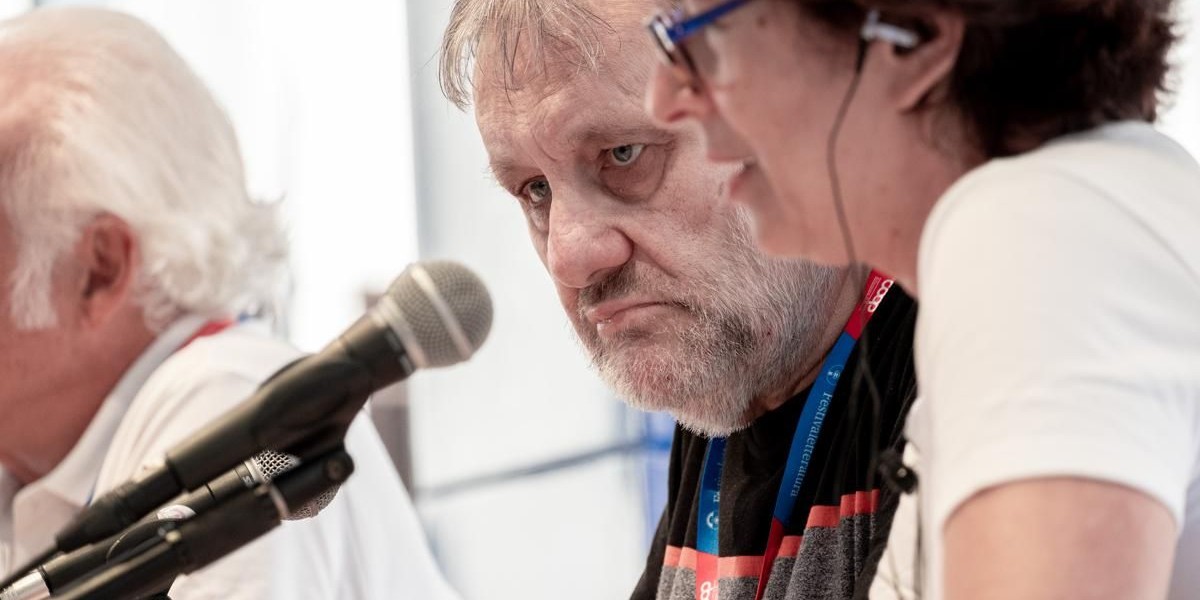
Unravelling the contradictions of human consciousness with Slavoj Zizek
“I can understand Italian, but I don’t speak it,” said philosopher-sociologist Slavoj Zizek, shortly before chiding the audience for applauding him instead of his translator. He was joined by Italian aesthetics professor Mauro Carbone on stage in Mantova’s Piazza Castello to discuss the themes of his book Hegel in a Wired Brain, an exploration of post-human consciousness.
People act as if there is no unconsciousness, Zizek asserted, as if obstacles come from the outside. He cited the concept of ‘yes means yes’, as explored by the British academic Katherine Angel. In his interpretation, the phrase presupposes people know what they want, when reality is more complicated. ‘Yes’ could be the result of subtle social pressure. “We need Freud, and his concept of divided consciousness.”
Urban myths sometimes play the role of helping us understand our inner consciousness, and for Zizek, the singularity – the point where artificial intelligence overtakes human brains - is another form of myth. For all history, humanity has been obsessed with these questions. We like to imagine obstacles that can’t be overcome. “If the obstacle disappears, you don’t get what the obstacle prevented. You lose everything,” he said.
Human civilisation is based on absences. Things that don't exist, that never existed, are needed to make the whole function. ‘Coffee without milk’ is a subtly different concept to ‘black coffee’, and Zizek maintains that programmers still struggle to replicate this difference in code. “So even if the singularity succeeds, will it mean the end of humanity? Or will a dimension of our minds escape?”



